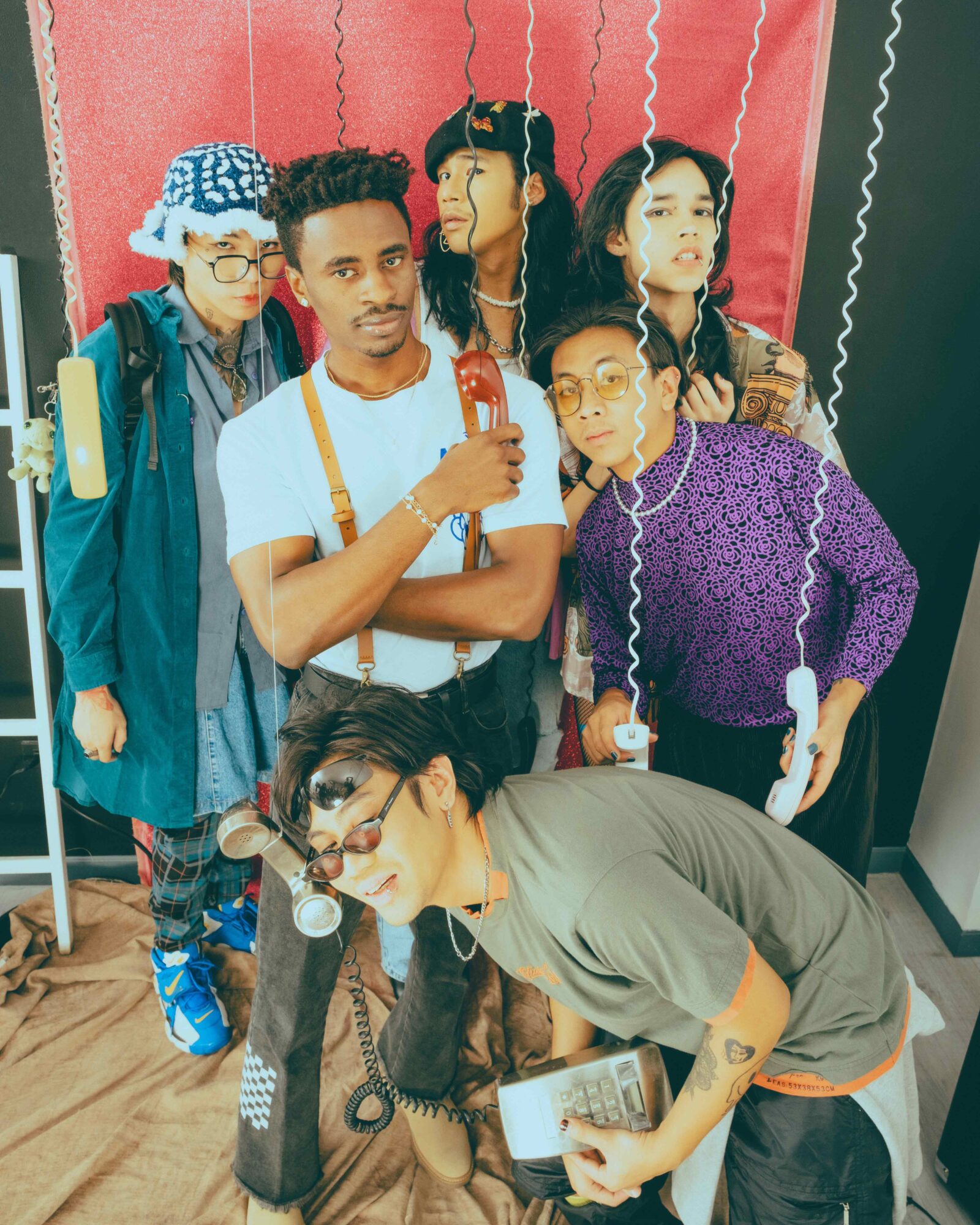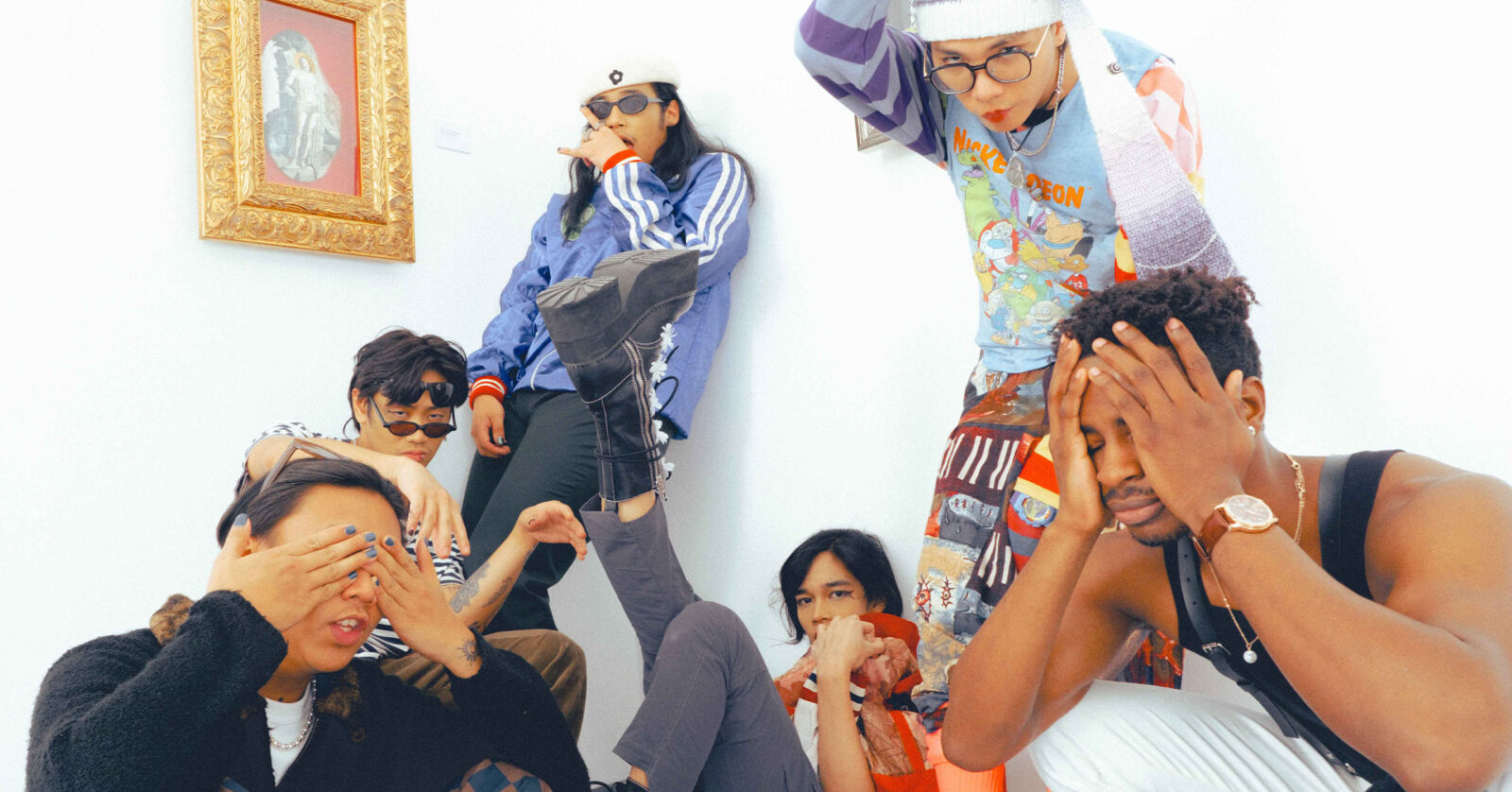There’s a certain magic when you witness Dilaw onstage. When they perform live, it’s almost cinematic — the six-piece band are locked in to each other’s energies, with lead singer Dilaw Obero leading the charge with his eccentric way of performing on stage.
When you listen to the studio recording of their chart-topping breakout hit “Uhaw” (Thirsty), you wouldn’t think that there was anything particularly eccentric or unconventional about the sound. It’s your standard smooth and catchy pop rock number — but watch the band perform live and you may be surprised to find a heavy metal section or Obero erratically dancing around.

“Yung pinanggagalingan ng ganung klaseng performance ay gusto naming ipadama sa tao kung paano ka manood ng movie sa sine” (When we perform, we want people to feel like they’re watching a movie), shares rhythm guitarist and co-chief songwriter, Vie Dela Rosa. “Bawat kanta namin, minake sure namin na ginawa namin 3-minute movie, life observation, or kung ano yung take namin sa isang subject (With each song, we make sure that we make it into a 3-minute movie, life observation, or whatever our take is with a certain subject)”.
This intentional approach to music is one that is founded on the band’s nature to continually explore the boundaries of their sound from the very start.

Dilaw started as the alternative hip-hop project of Obero and Dela Rosa; but what seems to be an unlikely change in genres wasn’t the case for the duo. Obero reveals that when they performed live as a hip-hop duo, they already did so with a band — a group of sessionists who eventually rounded out the Dilaw band project: sibling duo Leon and En Altomonte on lead guitar and keys respectively, Tobi Samson on drums, and Vie Dela Rosa’s brother Wayne on the bass.
“I feel like the change in sound is something that’s natural when you’re adopting new members in the band,” Leon says. He goes on to say that now that from two members, there are now six all giving their own inputs and flair on the band’s music. Their different influences merge together to create a discography that plays around with all types of rock music, refusing to be held down by just one sound of rock.

That may be the reason why it feels like “Uhaw” is a far cry from their earlier material. In their first EP, Sansinukob, “Uhaw” is sandwiched between more theatrical and complex pieces like “Kaloy” or alternative-leaning tracks like “Maskara” (Mask).
“Tinry din namin gumawa ng kanta na medyo malambing, mas madali ma-digest (We tried to make a song that was softer, easier to digest)”, Obero says, when going behind the sound of “Uhaw” versus their other tracks. Their earlier songs are heavier, he admits, but it doesn’t mean that just because “Uhaw” was the track that hit the charts, they’ll be completely abandoning their earlier sound.
“As a band, ‘Uhaw’ is one of the different sides or identities that we show as artists,” Leon maintains. “Yes, it’s a side we liked exploring, but we don’t like limiting ourselves with a specific sound that we try to chase.”

“Hindi naman ganoon kalalim pero minimake sure namin na nadidigest ng tao para mas makikita nila yung side namin na ganoon more than ‘it’s just a catchy song’ (It’s not that deep, but we make sure that people see a different side to us more than ‘it’s just a catchy song’)”, says Vie to close.
In the same way that every person’s life is significantly different from each other, Dilaw’s mission is to reflect that same diversity through their sound.
“Mas gusto namin maintindinhan nila kung gaano kami ka-into sa pag-observe ng buhay ng isang tao, more specifically sa music na ginagawa namin” (We want people to understand how particular we are with observing the lives of people, more specifically with the music we make).
A version of this story appeared in Billboard Philippines’ rock issue, dated Dec. 15, 2023.
